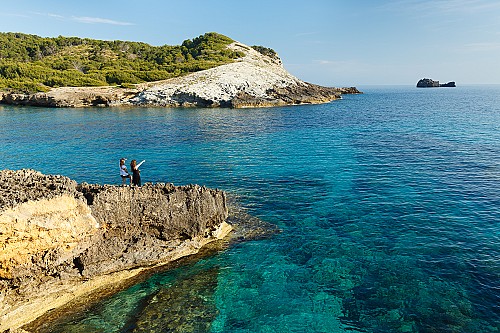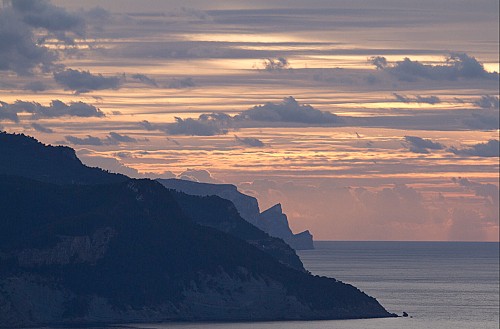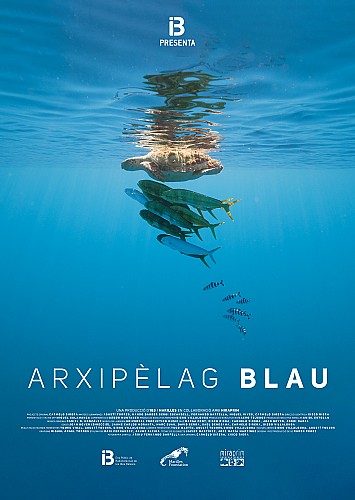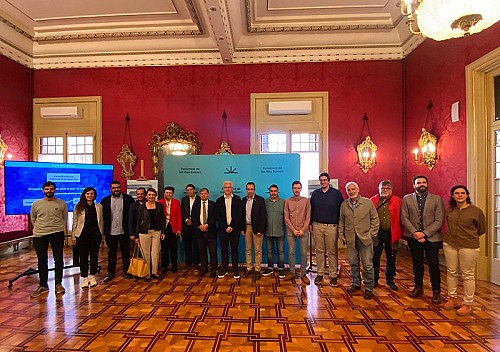Marilles is a partner in Interreg Mediterranean MPA NETWORKS, a European project designed to improve the effectiveness of Mediterranean Marine Protected Areas (MPAs) by proposing solutions in four areas: effective management, small-scale fisheries management, conservation of mobile species, and sustainable financing. All of these are in line with our strategic priorities.
The project – 85% funded by the Interreg MED Programme– is coordinated by MedPAN and brings together ten Mediterranean partners, mainly MPA management bodies from seven countries: Albania, Croatia, France, Greece, Italy, Slovenia, and Spain.
Managers' meeting in Palma
During the week of 13 June, the ten partners involved in the MPA NETWORKS and MPAEngage projects will meet in Palma. We will be joined by managers from many protected areas around the Mediterranean. Between those present and those online, we expect more than 150 attendees.
According to Marie Romani, executive secretary of MedPAN: "When managed effectively, MPAs are one of the best tools for conserving marine biodiversity and fisheries resources. The MPA NETWORKS project facilitates the work of MPA managers in the Mediterranean, allowing them to work together, discuss problems, and share solutions."
One of the reasons for the meeting is to proceed with the capitalisation of the pilot actions carried out by the different members of the two projects. Marilles Foundation has published a pioneering study in Spain, evaluating the natural capital of the Llevant-Cala Rajada Marine Reserve of Fishing Interest. The study was commissioned by Marilles Foundationand developed in collaboration with Ecoacsa, the Balearic Center for Applied Biology (CBBA), and the British consultancy Eftec.
A document of conclusions and policy recommendations from the MPA NETWORKS project will be presented at the meeting. It covers the four areas of work: effective management, small-scale fisheries management, conservation of mobile species, and sustainable financing.
A document drawn up by those responsible for the MPA NETWORKS project’s pilot actions in the Mediterranean will also be disseminated, which summarises in detail the state of play and how progress can be made along seven policy lines:
- Declaring strongly/totally protected/no-take maximum protection areas.
- Conserving mobile species, such as cetaceans, marine turtles, or seabirds.
- Ensuring what is implemented serves the interests of the affected communities and is known and accepted by them.
- Securing a future for fishers and putting fresh fish on the table for consumers.
- Providing adequate and sustainable funding for protected areas.
- Including the management of MPAs in climate change monitoring and adaptation measures.
- Exchanging information between management teams from different MPAs, regions, and/or countries and improving human and material capacity building.
In addition, the document also contains four recommendations on how to frame these policies:
- Develop national MPA systems and their governance frameworks to reach the 2030 targets. State-level commitment is needed to achieve effective implementation of both MPAs and Other Effective Conservation Measures (OECMs).
- Evaluate management effectiveness through harmonised monitoring as a basic tool to achieve maximum management effectiveness, effective reporting, and adaptive management.
- Coordinate networks of people who want to work as a team. International agreements set the common policies, but networks of people are the most effective implementation response when dealing with common problems.
- Increase the relevance of MPAs and set ambitious targets for their management to achieve a highly conserved sea that can maintain or increase the ecosystem services it already provides.
We will use this meeting to celebrate, in person at last, that we have been able to complete the projects, despite obstacles imposed by COVID. We shared, exchanged, and reflected in many meetings, courses, workshops, and working groups during the pandemic, but it was only possible to hold one face-to-face meeting to launch the project in February 2020. Perseverance and the fine-tuning of telematic tools have enabled us to achieve most of our objectives within the proposed projects.
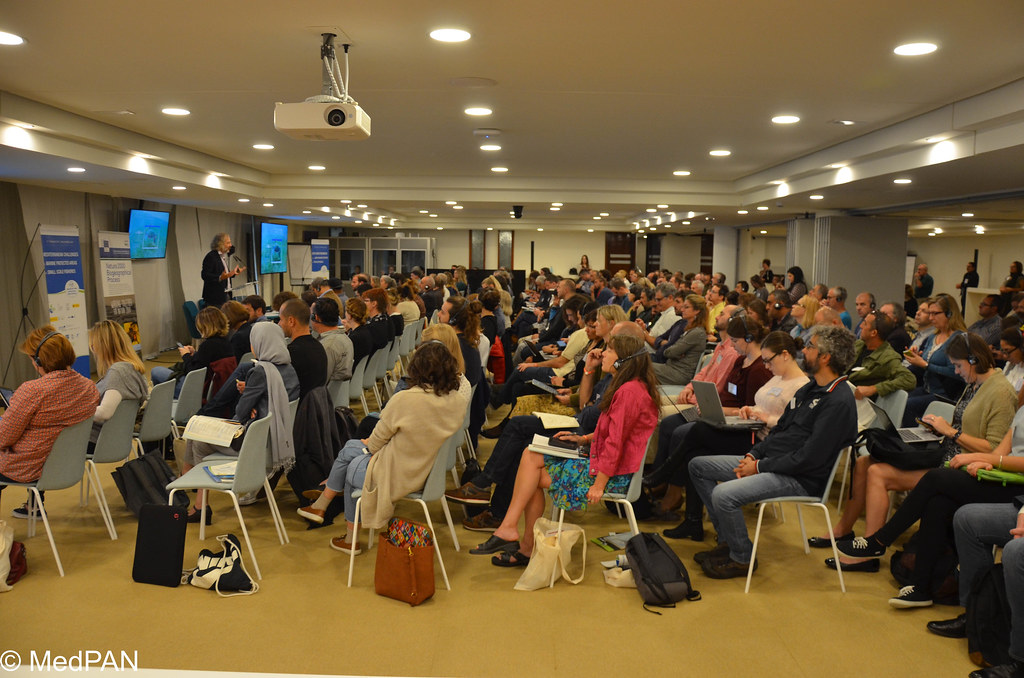
Mediterranean MPA managers met in Palma in 2018.Photo: MedPAN.


